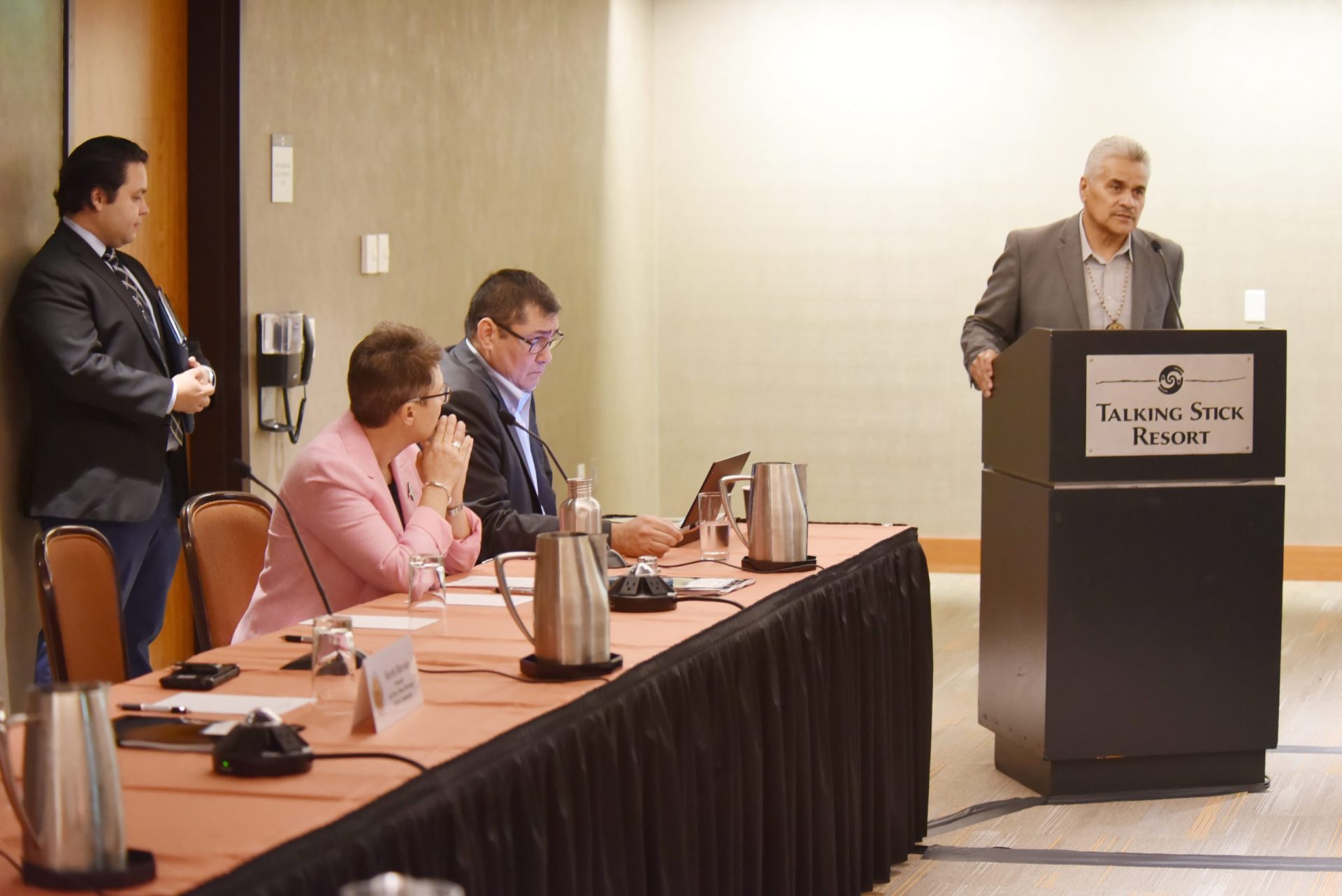VIEWS: 2175
September 6, 2023ITCA Tribal Leaders’ Water Policy Council and Colorado River Tribal Roundtable
On August 11, the Inter Tribal Council of Arizona (ITCA) held the Tribal Leaders’ Water Policy Council and Colorado River Tribal Roundtable at Talking Stick Resort.
The Colorado River Tribal Roundtable operates as part of ITCA’s Tribal Leaders’ Water Policy Council, which was established to broaden participation of tribal leaders in water policy. In 2021, the ITCA and the U.S. Bureau of Reclamation established a memorandum of understanding to ensure tribal participation in Colorado River water-rights negotiations.
The roundtable focused heavily on the recent U.S. Supreme Court decisions Arizona v. Navajo Nation and Sackett v. EPA. Other topics of mention were an overview of the Arizona Governor’s Office of Resiliency, aquifer quality standards rulemaking, updates from the Bureau of Reclamation, and the Central Arizona Groundwater Replenishment District (CAGRD) 2025 Plan of Operation.
Salt River Pima-Maricopa Indian Community President Martin Harvier opened the roundtable with a blessing and remarks about the importance of water to the Community’s history and identity.
“Our ancestors [the Huhugam] knew how to construct canal systems for the purpose of using the water to provide for [themselves]. It’s up to us to continue to work hard so we can continue to provide water for the people in this area for the future. It’s our responsibility.”
Susan Montgomery, partner at the Montgomery & Interpreter law firm in Phoenix, who was present to talk about the Sackett v. EPA case, was inspired by President Harvier’s remarks.
“I thought, ‘Wow. What would it have looked like if I could have seen the wetlands associated with the Salt River many years ago?’ It would have been an amazing thing to see,” Montgomery said.
Ak-Chin Indian Community Chairman Robert Miguel and Vice-Chairman Lemuel Vincent were also present at the roundtable. Miguel noted that when it comes to trust responsibilities, tribal water rights and other issues, he’s seeing more pushback from the federal government of late.
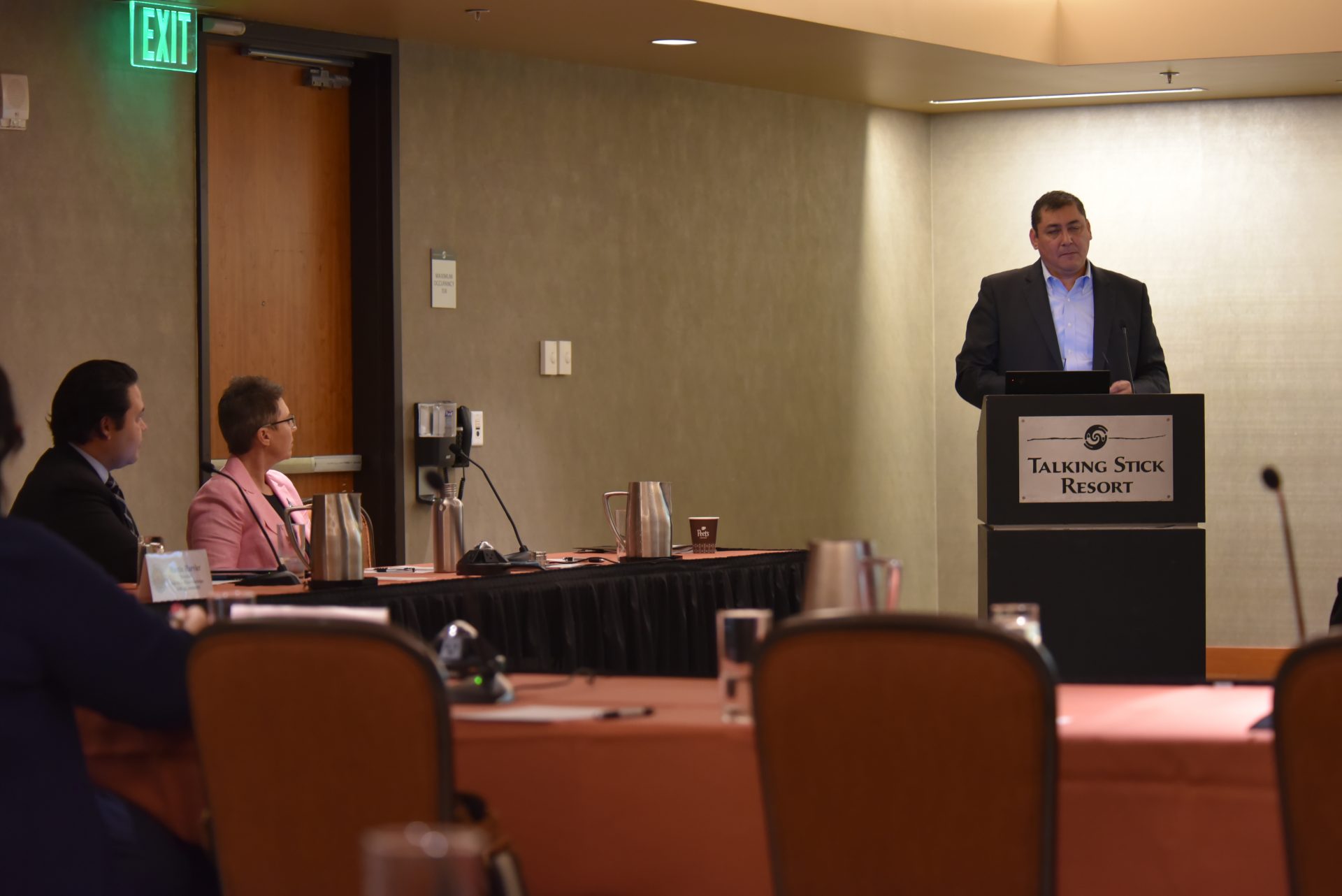
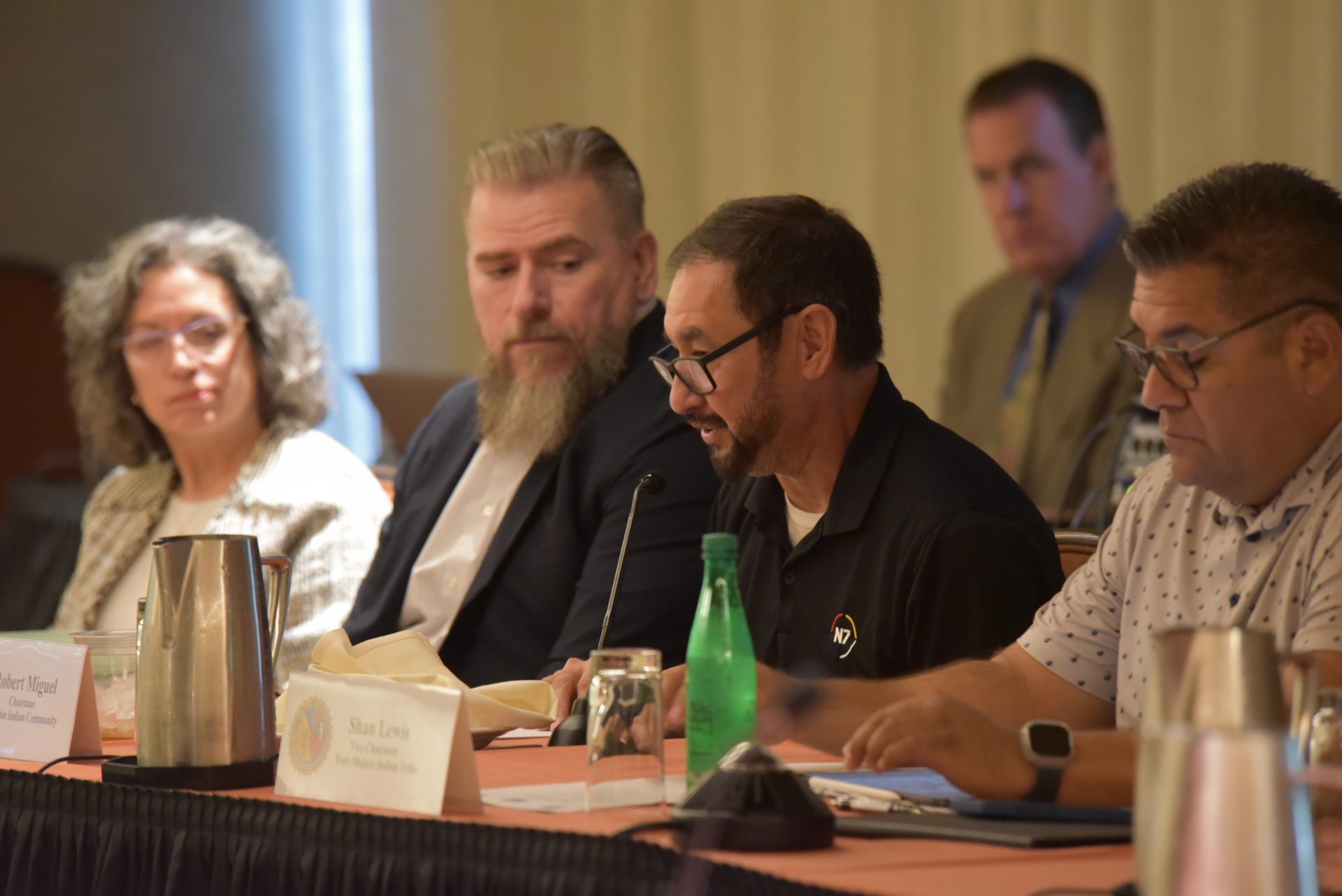
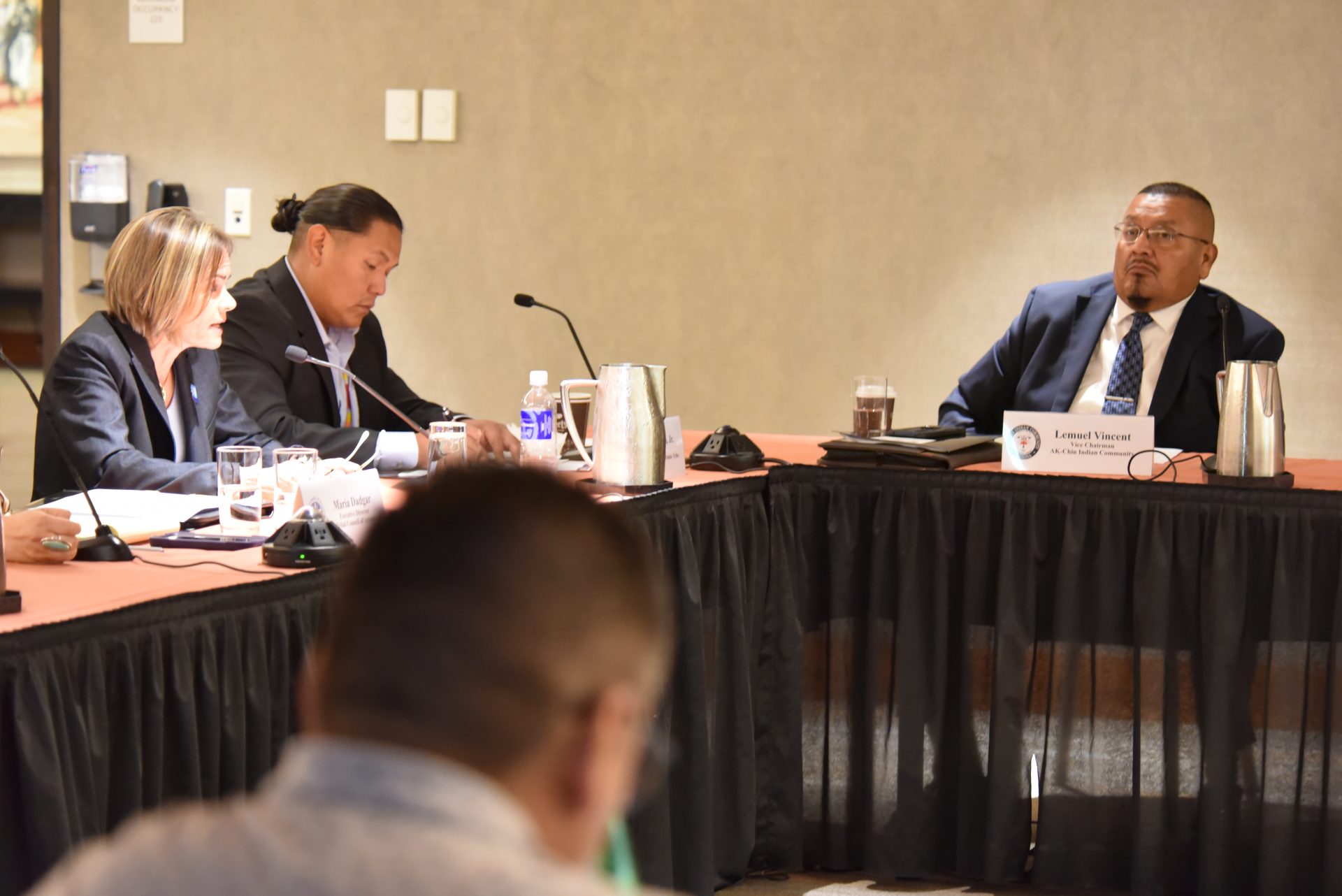
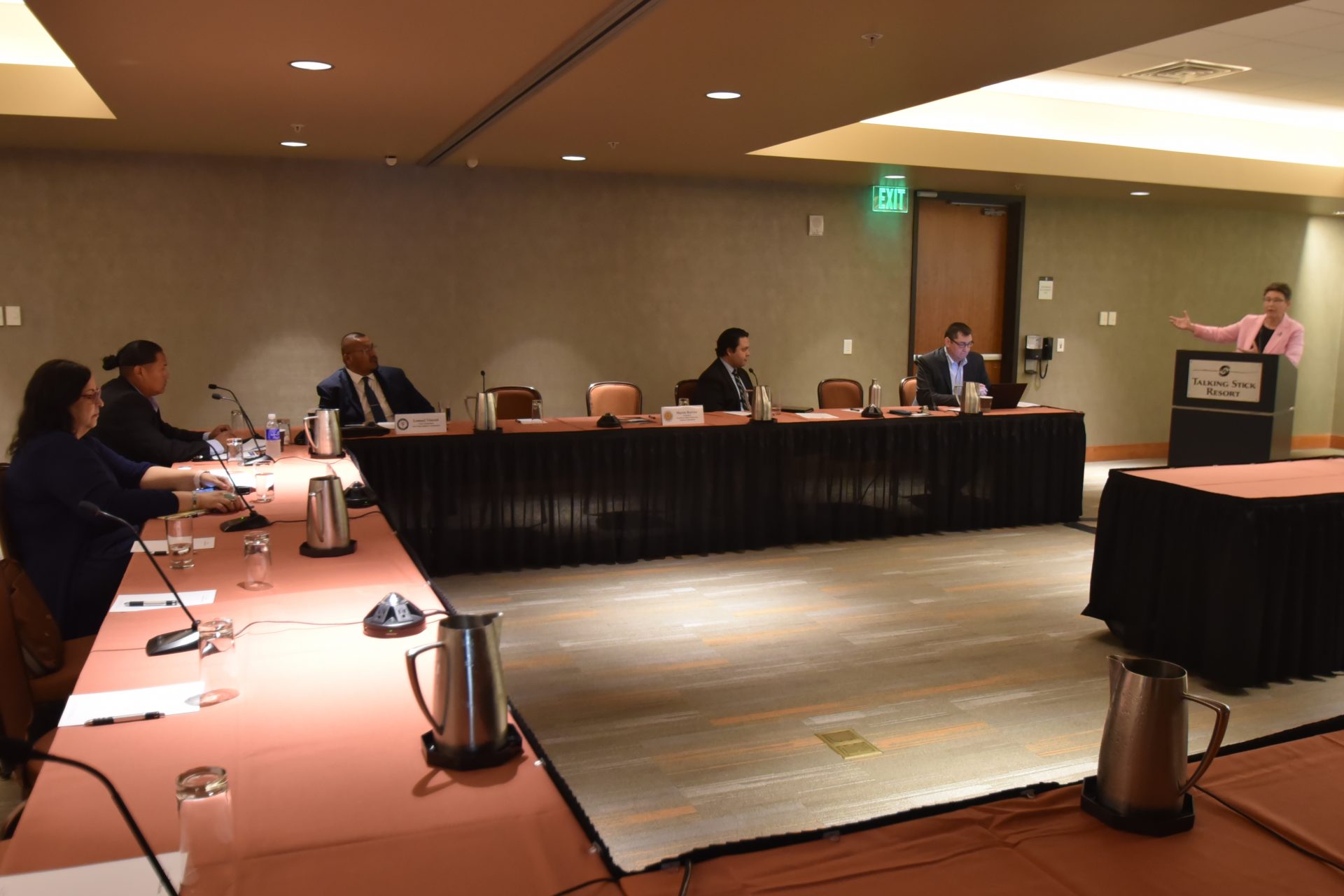
“For so long, our tribe has been having issues with getting permitting processes from the Army Corps of Engineers to maintain our washes. We have had issues with flooding within our washes,” Vincent explained. “When we met with [the Corps] recently, the topic of jurisdiction came up. It seemed like they didn’t want to take responsibility for it. Every time somebody new comes into [the Corps administration], it’s another process, so it gets pretty frustrating. We’ve been getting the runaround for many years.”
Miguel said that the situation got to the point to where the Ak-Chin Community was going to take care of the washes themselves.
“Then we were told if we [did] that, we were going to be penalized for funding it ourselves,” Miguel said. “We have had to do what we needed to do, because these washes are adjacent to our enterprises. If there was a breach within the wash, it would destroy our economic development and how we support our Community.”
A big topic of discussion at the roundtable was the U.S. government’s trust responsibilities, which came from a panel discussion about the recent case Arizona v. Navajo Nation. This case was a water rights dispute over allocation of Colorado River water. It was decided by the U.S. Supreme Court on June 22 of this year, reversing an earlier decision of the U.S. Court of Appeals for the Ninth Circuit. With the 5-4 majority opinion in the U.S. Supreme Court written by Associate Justice Brett Kavanaugh, the case determined “that although the [1868 Treaty of Bosque Redondo] reserved necessary water to accomplish the purpose of the Navajo Reservation, the treaty did not require the United States to take affirmative steps to secure water for the tribe.” As a result, the U.S. is not required to secure water rights for the Navajo Nation.
Gila River Indian Community member Jason Hauter, partner with the law firm Akin Gump Strauss Hauer & Feld, LLP, broke down the case and shared his opinion based on his experiences working with tribes. Hauter said that the U.S. Solicitor’s Office and Department of Justice’s (DOJ) job is to limit the U.S.’s exposure and liability in cases like this.
The Office of the Solicitor has more than 500 employees, more than 400 of whom are licensed attorneys, according to the office’s website.
“[The Office of the Solicitor and DOJ] are there to win the case. Even if you have a trust obligation and, say, a settlement, I imagine they are going to find ways to limit that obligation if you ever did bring a claim under a settlement to enforce those rights,” said Hauter. “They’re not friends to tribes when it comes to tribes bringing these types of claims.”
In the Opinion of the Court, Kavanaugh stated, “It is not the Judiciary’s role to rewrite and update this 155-year-old treaty. Rather, Congress and the President may enact—and often have enacted—laws to assist the citizens of the western United States, including the Navajos, with their water needs.”

